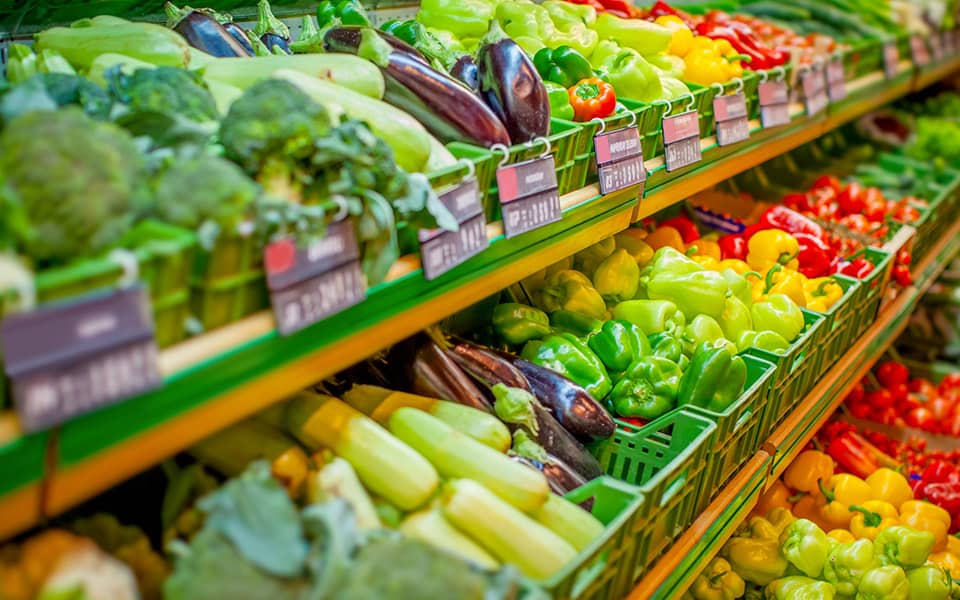Mitigate Food Safety Risks to Protect Your Reputation and Bottom Line

*On June 1, 2023 Emerson’s Climate Technologies business became a new standalone company – Copeland. Though our name has changed, we are building on more than a century of HVACR innovation and industry leadership, and Copeland continues to offer the same products, industry stewardship, and learning opportunities you’ve grown to trust. Information found on this webpage posted before June 1, 2023 may contain our old name or branding, but you can be at ease knowing it was created with the knowledge and expertise of Copeland.
For suppliers of fresh and/or frozen perishable foods, protecting their brand reputation is a top priority. Retailers rely on producers to stock their frozen aisles and perishable sections with the consistently high-quality product that keeps consumers coming back. Many consumers know their favorite brands by name, and when given a choice, will select these brands over other suppliers. This hard-earned loyalty has taken years to develop and must be protected at all costs. If you’re a producer, this means that consistently delivering the safest, freshest foods possible is a fundamental tenet to your success.
Keeping perishable products free from contamination and at the proper temperatures throughout every phase of the cold chain journey is critical to maintaining food safety and maximizing its quality. Over the past several years, when highly publicized incidents of foodborne illness have been reported, produce was often identified as a primary source of contamination. In fact, industry reports estimate that most foodborne illness outbreaks can be attributed to produce.

What’s at stake for producers?
While human costs are incalculable, the financial costs of food recalls and foodborne illness outbreaks have far-reaching impacts to growers and their retail partners. According to a recent food industry study, a publicized outbreak of foodborne illness can tarnish a producer’s reputation severely, lead to significant sales losses, and increase the risks of legal, financial and regulatory fines and penalties. And while reputational impacts are also difficult to quantify, consumer sentiments from this study were clear:
-
- 44% will avoid the brand for a few months after an outbreak.
- 20% will never return/use the brand again.
- 16% will switch to a competitor’s brand.
- 20% will return once the issue is resolved.
Retail partners may be even less forgiving and seek an alternative provider to mitigate future risks to their customers and operations.
How can you protect your brand?
As a key link in the world’s perishable food supply chain, producers need every tool and technology at their disposal to maximize produce quality and safety. Achieving cold chain safety is a process that starts from the point of harvest and continues through processing, in-transit shipping and cold storage — all before final delivery to grocers and restaurants. To reduce the risks of spoilage or contamination, producers need quality control programs that focus on temperature management and proper handling procedures.
Temperature management. Maintaining precise temperatures is essential for proper cold chain management and to prevent the growth of bacteria from temperature variations in a shipping container. Emerson provides GO real-time trackers and loggers as well as a robust technological infrastructure to:
-
- Enable in-transit temperature monitoring
- Provide visibility to shipper locations
- Capture historical trip data
- Support producers’ quality control initiatives
- Help ensure temperatures are kept at the required setpoints
Proper handling procedures. Improper handling procedures are key contributing factors to foodborne illness within the perishable cold chain. Producers must guard against every opportunity for contaminants to be introduced during each step of the harvest and shipping processes. Key contributing factors include:
-
- Cross-contamination in shipping, handling and storage procedures
- Poor employee hygiene
- Potential spread of bacterial pathogens that cause food poisoning
Taking a proactive approach to regulatory compliance and food safety
In addition to the financial and reputational risks of a food recall or foodborne illness outbreak, ensuring compliance with food safety regulations is more critical now than ever. The Food Safety Modernization Act (FSMA) of 2011 has ushered in a new era of food safety and shifted the focus from reactive responses toward more proactive measures — a philosophy that many leading producers are also adopting as a best practice.
To implement this approach, suppliers must have the tools to maintain visibility into how their food is handled and stored at every step of the cold chain — which potentially can have as many as 30 changes of custody — and automate the recording and management of this data for reporting purposes.
Emerson is committed to helping producers protect their customers, their reputations and their profits. Our advanced GO real-time trackers and GO loggers — combined with our Oversight software portal — are providing visibility to in-transit perishable shipments to help producers and cold chain stakeholders implement their food safety initiatives. View our food safety infographic to learn more.
Protection for high-value shipments just got even better
by Alex Axelsson | Cold Chain, Transportation
We’re excited to announce the release of Copeland’s newest real-time tracker, the GO Real-Time...

Three proven strategies to prevent cargo theft
by Chris Lafferty | Cold Chain, Transportation
The over-the-road (OTR) transport industry is experiencing a surge in cargo thefts. As thieves...

Four Keys to Successful Cold Chain Shipping
by Michelle Rodriguez | Cold Chain
Temperature management best practices for maximizing perishable food quality and safety When...
The post Mitigate Food Safety Risks to Protect Your Reputation and Bottom Line appeared first on Copeland.